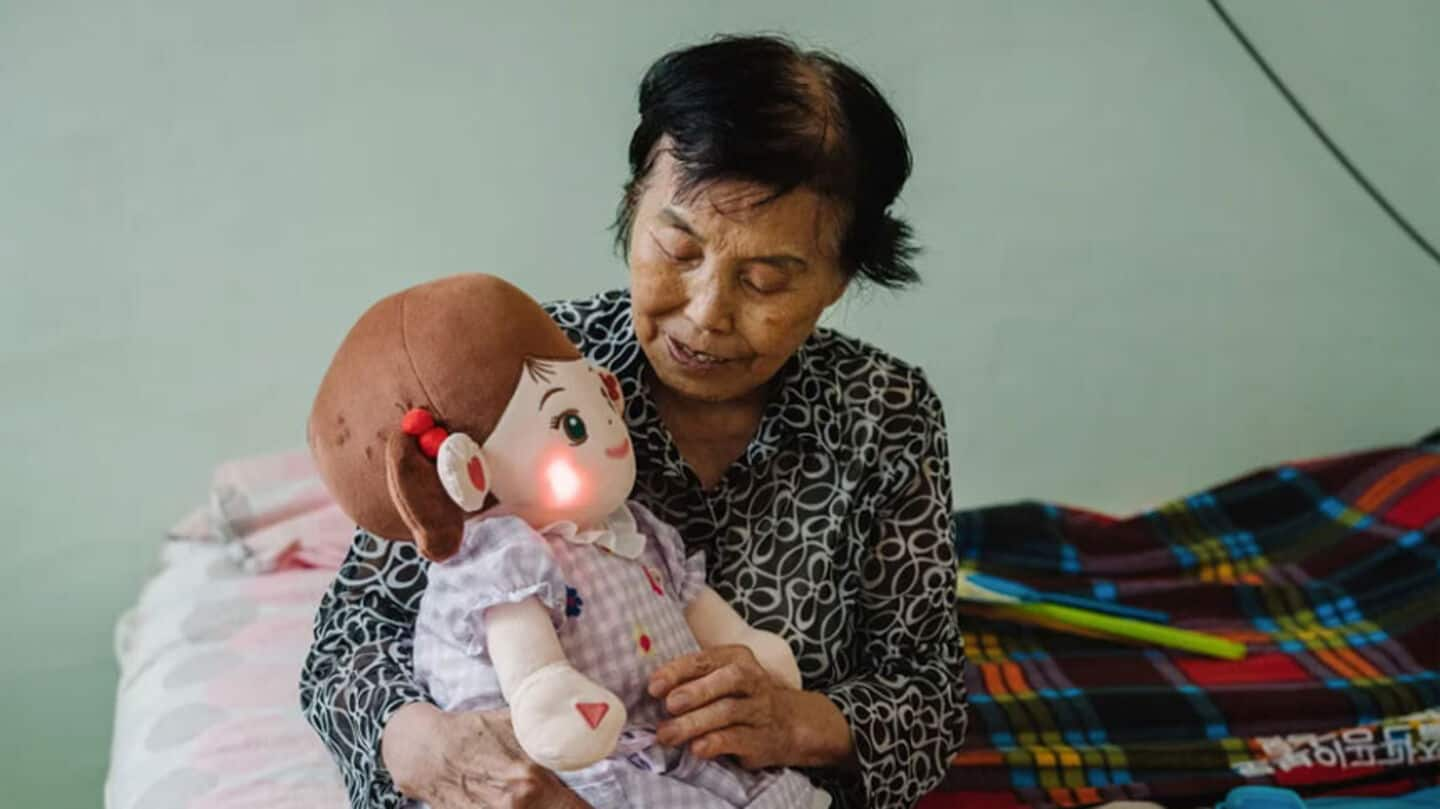
'Robo-grandma' dolls are offering comfort to South Korea's lonely elderly
What's the story
South Korea is facing a major mental health crisis among its elderly population, with around 10 seniors dying by suicide every day. The alarming trend has prompted the government to explore innovative solutions, including the use of artificial intelligence (AI) powered "robo-grandma" dolls. These AI companions are being deployed as a way to combat loneliness and provide emotional support to seniors living alone.
Demographic shift
Aging population and social isolation
South Korea is classified as a "super-aged" society, with over 10 million people aged 65 or older. This demographic shift has led to more seniors living alone, resulting in financial strain, loneliness, and feelings of being a burden. These conditions are directly linked to depression and suicide. The rapid economic transformation of the country has also changed its traditional social fabric, further exacerbating the problem.
Technological intervention
Tech companies step in to address the crisis
As South Korea's public health system struggles with this social shift, the government is increasingly relying on tech companies to tackle the "K-elderly crisis." One such company is Hyodol, which has developed an AI healthcare and smart home platform centered around a doll-like robot. The robot provides practical support such as medication reminders and emergency alerts while also allowing social workers to remotely log daily information like mealtimes.
Emotional support
The emotional impact of 'robo-grandma' dolls
The "robo-grandma" dolls, designed as huggable soft dolls, respond to touch and provide music, conversation, and cognitive exercises. Their most powerful feature is the simple greeting that awaits a senior returning home: "Grandma/Grandpa, I've been waiting for you all day long." Hyodol CEO Jihee Kim emphasized the importance of the doll's cute design in building trust with seniors who are often not very tech-savvy.
Positive outcomes
'Robo-grandma' dolls show positive results in improving mental health
As of November 2025, over 12,000 Hyodol robots have been deployed to seniors living alone across South Korea. The initiative has shown positive results in improving mental health among users. A study conducted by UNC Charlotte's Othelia E Lee found that seniors who regularly used the robot showed reduced depression and improved cognitive scores after six weeks of use.
Ethical considerations
Ethical concerns and limitations of 'robo-grandma' dolls
Despite the positive impact, the emotional bonds formed with "robo-grandma" dolls have raised ethical questions about emotional dependency and potential infantilization. Some experts and seniors themselves have viewed the use of a baby-like doll to monitor actions and gestures as diminishing dignity and autonomy. Hyodol CEO Kim acknowledged these concerns but clarified that their product is meant to be a support tool, not a replacement for human care.